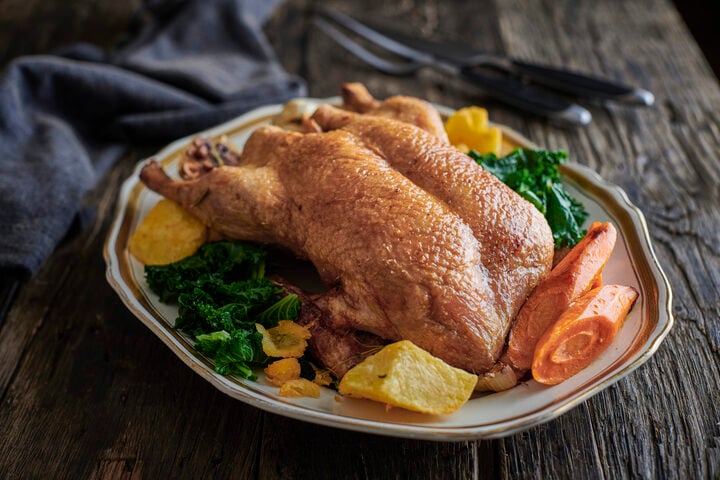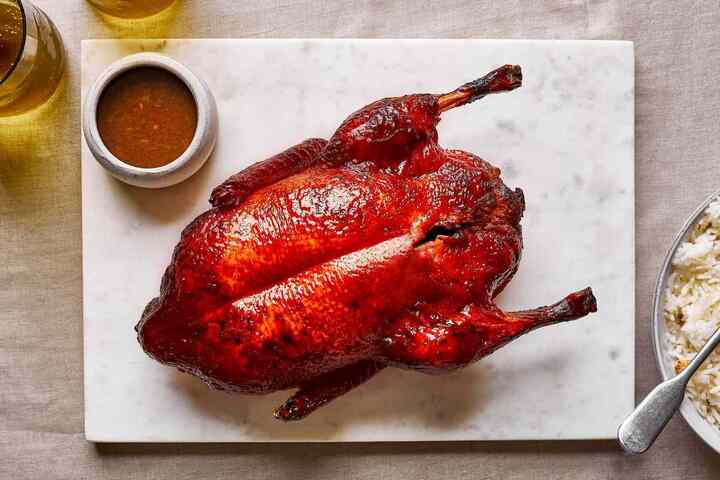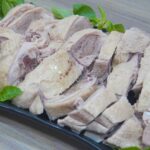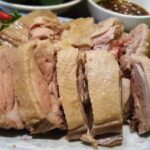Duck meat is delicious, but it can also turn unappetizing and develop an unpleasant odor. Even if you buy a duck with sweet meat, its characteristic foul smell can still put people off the dish you’ve worked hard to prepare.

Anyone who cooks should know how to get rid of the duck’s foul smell. (Image: Gressingham)
Effective ways to remove the foul smell from duck meat
To prepare delicious duck meat, first, you need to choose ducks that are meaty, not too big or too skinny. If you’re buying dressed duck, select one that’s still fresh and bounces back when touched. Avoid ducks with shiny skin, overly thick flesh, or deformed appearance when held upside down (these are ducks injected with water).
To eliminate the foul smell from duck meat, after plucking the feathers, you must thoroughly remove the oil gland at the tail, the main source of the duck’s distinctive unpleasant odor. The oil gland in ducks is quite large and occupies almost the entire cloaca, so it’s best to cut away the entire cloaca. Since the smell of the duck’s oil gland is much stronger than that of a chicken, leaving even a small amount can make the duck meat smell bad.
After cleaning the duck, place it in a basin and rub it thoroughly with salt, pepper, crushed ginger, and a little rice wine. Marinate for about 30 minutes, then rinse and drain. This is an effective method to eliminate the foul smell, in addition to removing the cloaca mentioned above. When boiling the duck, simply add a piece of crushed ginger to be assured that the unpleasant smell is gone, and your dish will exude an attractive aroma.
If you prefer the fragrance of lemongrass, you can also add a few crushed stalks to the pot of boiling water.
Another way to remove the foul smell from duck meat during the preliminary processing stage is to mix vinegar and salt in a 1:1 ratio and rub it on the duck (if you don’t have vinegar, you can use lemon).

There are several methods for housewives to eliminate the foul smell of duck before cooking. (Image: Spure)
Benefits of Duck Meat
A post on the website of Vinmec International General Hospital points out some of the benefits of duck meat as follows:
– Lowering Cholesterol: The monounsaturated fat in duck fat can help maintain desirable levels of “good” HDL cholesterol. Additionally, it may play a role in reducing levels of “bad” LDL cholesterol. However, duck meat also contains bad fat, so it should be consumed in moderation, and you may want to avoid eating the skin.
– Energy Boost: Duck meat is rich in essential amino acids, which help the body produce energy for daily activities.
– Strengthening the Immune System: Selenium, an important antioxidant found in duck meat, can help prevent cell damage and inflammation, thus supporting the immune system.
– Supporting Thyroid Health: Adequate selenium intake is also crucial for thyroid health. A 250-gram serving of duck meat provides over 50% of the daily selenium requirement.
Notes when consuming duck meat
To optimize the benefits of duck meat for your health, keep in mind the following:
– Consider the high-calorie content of duck fat before consuming: Duck skin contains a thick layer of fat, providing a significant amount of calories, which can easily lead to weight gain if duck meat is not consumed in moderation.
– A recent study found that cooked duck fat is more prone to oxidation than other oils or fats during storage. Lipid oxidation causes food to deteriorate and can be harmful if not consumed promptly. Therefore, do not store duck meat in the refrigerator for an extended period.
– The United States Department of Agriculture (USDA) has recommended cooking duck thoroughly to an internal temperature of at least 74 degrees Celsius to ensure the destruction of bacteria and viruses.
According to VTC News




































